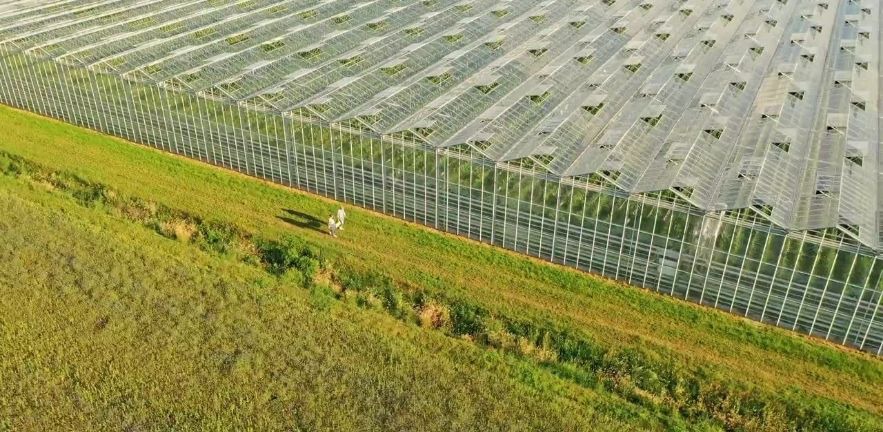The focus on sustainability at Cambridge Judge Business School extends far beyond the classroom. The Business School encourages students and others with entrepreneurial zeal to pursue their passions, and many people setting up new enterprises seek to tackle climate change, food waste and other issues relating to sustainability. Many of these ventures have been supported by the Accelerate Cambridge programme, part of the Business School’s Entrepreneurship Centre, and by Cambridge Social Ventures, part of the Cambridge Centre for Social Innovation.
“Since their inception, the UN’s Sustainable Development Goals and efforts such as the COP26 conference have brought into sharp focus the need for innovative and entrepreneurial solutions that address some of the world’s most pressing environmental and societal challenges,” says Bruno Cotta, Executive Director of the Entrepreneurship Centre at Cambridge Judge.
“We are increasingly seeing this awareness and call to action reflected in the early-stage startup community here in the UK, and similarly in our own programmes of support for entrepreneurship. It’s clear that this agenda now speaks directly to the vision, hearts and minds of many of our next generation of innovators and entrepreneurs, who are ideally placed to translate both their technical and commercial knowledge and skills in a variety of sectors, to make a real difference for themselves and others, in years to come.”
Adds Neil Stott, Co-Director of the Cambridge Centre for Social Innovation: “Like other parts of Cambridge Judge, our research centre has devoted much of its energy to tackling some of the society’s grand challenges, which range from poverty to hunger to sustainability.
“We have been impressed by the dedication shown by Cambridge Judge students and others to find practical solutions big and small to tackle areas of sustainability ranging from food to waste management, and we look forward to new generations of mission-guided entrepreneurs we can support in years to come.”
The following 7 ventures are but a small sample of the sustainability-related enterprises supported or otherwise associated with Cambridge Judge Business School:
Animal Alternative Technologies
Supported by the Accelerate Cambridge programme, Animal Alternative Technologies is a recently founded biotechnology B2B spun out of the University of Cambridge. The firm is engineering a scalable, end-to-end ecosystem for cultured meat production to replace resource-intensive animal farming. “Animal farming is responsible for over 25% of earth’s ice-free land use,” the company says.
Gousto
Meal-in-a-box company Gousto, founded by Executive MBA graduate Timo Boldt (EMBA 2014), earned a B Corp designation as an enterprise that combines purpose and profit. Gousto says the B Corp badge reflects in part its efforts to reduce food waste. “We’ve joined a global community of businesses that are dedicated to building a better world. Getting here was tough to say the least (the application is rigorous). We think it’s worth it though, as a B Corp badge doesn’t just mean we meet the highest environmental and social standards, but also commits us to keeping these high standards up for the long haul.”
Citizen Zoo
Citizen Zoo, which was supported by Cambridge Social Ventures, focuses on “Rewilding Our Future” by restoring habitats and reintroducing species to their former ranges based on research that delivers measurable outcomes. “Through translocations, reintroductions, captive breeding programmes, and a whole host of other conservation actions, we’re working to rebuild habitats to a more whole state.”
Cool
Cool, supported by Accelerate Cambridge, offers a CO2 removal service for a fixed price, similar to how households have their rubbish removed every week or 2. “From there, our CO2 refinery will transform it into a valuable raw material. This saves emitters the costs of CO2 sequestration and/or emissions penalties and provides a use for CO2 that both scales and permanently removes it from the atmosphere.”
Churchill Gowns
Churchill Gowns, which was supported by Cambridge Social Ventures, is a supplier of high-quality graduation regalia to students at universities and other schools throughout the UK. Their academic dress is up to 80% per cent less expensive than traditional suppliers, and they believe in ethical manufacturing, environmental sustainability and social responsibility.
Footprint Cafés
Footprint Cafés, founded by Cambridge Judge alumna Georgina Hemmingway (PGDE 2014) and supported by Cambridge Social Ventures, is a restaurant, bookshop and event space in one, investing its profits in educational programmes in Siem Reap province in Cambodia. They source ingredients locally and recycle where possible, promoting local culture and social projects.
SATAVIA
SATAVIA, an aviation analytics and visualisation company which was supported by Accelerate Cambridge, uses artificial intelligence with the aim to reduce aviation’s climate impact by 60%. “Our vision is simple: to eliminate 2% of human climate impact through smarter, greener aviation,” says the company, which has developed a system to enable aircraft operators to prevent climate forcing caused by contrails, the condensation trails formed from aircraft exhaust.


